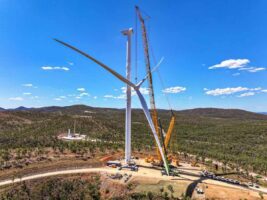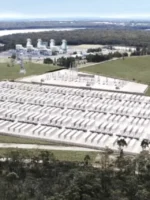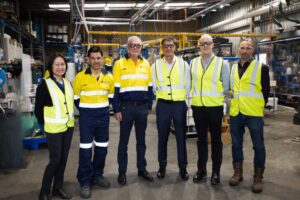Australian start-up AgriWebb will accelerate the deployment of innovative software designed to improve farm productivity and reduce greenhouse gases through soil carbon, after securing a $5 million investment from the Clean Energy Finance Corporation (CEFC).
The Sydney-based start-up, which has developed a digital livestock management platform, says the platform provides a greater ability to capture and analyse data on agricultural production, boosting productivity and provide farmers with greater visibility of their contributions to greenhouse gas emissions.
The CEFC made the $5 million commitment through its Clean Energy Innovation Fund, with the software able to track methane emissions produced from livestock and the amount of carbon stored through soil carbon sequestration.
“AgriWebb allows farmers to take advantage of the digitisation that has made life easier across many other industries, minimising paperwork after a long day in the field,” said CEFC CEO Ian Learmonth.
“It collects data from gates, weigh stations, electronic tag readers and feed and water troughs, and captures in-field decisions in real time. This information gives farmers a more detailed picture of the health of the herd and pastures, allowing them to allocate resources more efficiently and to reduce carbon emissions.”
The AgriWebb platform is already used in the management of around 14 million head of livestock worldwide, with around 15 per cent of Australian cattle and sheep currently managed through the platform.
The company was founded by a trio of tech entrepreneurs, Justin Webb, Kevin Baum and John Fargher in 2014, and its software platform has been adopted by more than 5,000 farmers globally.
The company estimates that the platform has already driven an estimated 7.5 per cent improvement in productivity across farms in Australian and the United Kingdom.
“AgriWebb is already making farming more efficient and we believe it can also drive better measurement and management of emissions,” said executive chairman and AgriWebb co-founder Justin Webb.
“The CEFC brings deep experience in decarbonisation and sustainable agriculture and joining forces with the Innovation Fund team will help AgriWebb improve its focus on sustainable farming.”
The Morrison government identified the measurement of soil carbon as one of its priority technologies under a Technology Investment Roadmap released last year, with the government setting a ‘stretch goal’ to significantly reduce the costs of determining the amount of carbon stored in agricultural soils.
Learmonth said that there were substantial opportunities to reduce emissions in the agricultural sector, while also driving improvements in farming productivity.
“Technology is playing an increasingly important role in sophisticated farm management. Information provided by the AgriWebb platform will help farmers manage their farm more sustainably and shift livestock between paddocks to avoid overgrazing,” he said.
“More efficient farm production is a win for farmers and the environment. Increasing soil carbon levels can help reduce atmospheric carbon, offering another pathway to decarbonise the agricultural sector.
“Agriculture accounts for about 12 per cent of Australia’s greenhouse gas emissions, and red meat production contributes significantly through digestive gases and the reduction in soil carbon from overgrazing.”
The CEFC’s $5 million investment was part of a $30 million capital raising for AgriWebb, which was led by the venture capital arm of Canadian telecommunications company TELUS.









